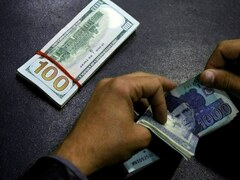Rukhsana Shah, Federal Secretary of Ministry of Textile Industry visited the Karachi Cotton Association (KCA) on Thursday, and met the Executive Committee and prominent members of the Cotton Trade. Welcoming the Secretary, Chairman Amin Hashwani said the KCA was a unique association compared to other trade bodies as it represented all segment of the cotton trade/industry and enjoyed excellent reputation locally and abroad.
Chairman stated that the Association had undertaken a series of initiatives to play a pivotal role in the industry in years to come including (i) holding an Annual International Cotton Conference to bring all stakeholders nationally and internationally together, (ii) Annual Cotton Workshop for CEOs and Senior Managers in collaboration with International Cotton Association and (iii) Set-up a Cotton Museum to create interest in the new generation about the commodity.
He requested the Secretary to extend collaboration and support of her Ministry in holding the Conference which she gracefully agreed. He expressed the concern of the KCA over the recent intervention of TCP in the market, and said "such initiatives will reap windfall profits for the ginners instead of the growers, create distortions in the market making the down stream industries uncompetitive and also burden the Government with billions of losses. A direct subsidy to the growers would be more economical and effective."
The Secretary, Ministry of Textile Industry thanked the Association and stated that the KCA had a long history in cotton trade and she believed that many members of the cotton trade had been serving the Association over generations. Appreciating the role of cotton in the country's economy, Federal Secretary, Ministry of Textile Industry stated that the production and processing of cotton employed more than 10 million people and generated billions of dollars in economic activity as it moves from production at the farm level through processing to manufacture and retail. "Pakistan being the fourth largest producer and third largest consumer of cotton in the world has an immense comparative advantage that needs to be converted into a sustainable competitive advantage."
She also stated that the textile sector in Pakistan had remained stagnant over the last decades due to a number of exogenous and indigenous factors including subsidies given to cotton farmers by several countries which distort international prices, marketing constraints, global recession and increasingly stringent buyer's conditionalities. On the domestic side, cotton production has remained stagnant at about 13 or 14 million bales per annum mainly due to poor seed quality, low germination levels, and absence of Plant Breeders Right Act, which would have open to doors to new technologies and varieties which would have also substantially increased the yields. Additionally the resistance to grading and standardisation of cotton bales by ginners and spinners alike has consistently lowered the value of Pakistani Cotton by around 10 cents per pound in the international market.
On the other hand, new countries from Africa and Lain America are coming into Cotton market producing cotton in a manner that is both technologically sound and environmentally sustainable by adopting instruments based on Standardisation System and online data verification of every bale of cotton, she added. She informed that Ministry of Textile Industry had recently re-introduced the CSF and restructured the Pakistan Cotton Standard Institute (PCSI) so that it might play an important role in improving quality and contamination levels of our cotton.
She further informed that the Ministry of Textile Industry had reconstituted the PCCC, making it more balanced and with wider representation from growers from all the provinces, and experts and scientists. By taking this step, governance of the PCCC has been improved accounts streamlines, and four budgets regularised and / or approved, which had been pending for a long time, affecting the morale of the workers of the organisation.
Federal Secretary, Ministry of Textile Industry apprised the meeting that she had attended a 73rd Plenary Meeting of the ICAC held at Greece last week. She was of the view that the KCA could play an effective role in protecting Pakistan's vital interest at this forum through the Private Sector Advisory Panel of the ICAC.
She also apprised that Pakistan was the third largest country producing Better Cotton, but other countries were fast catching up with this idea by 2020, importing countries had pledged that they would source 30 percent of their imports from countries which produced Better Cotton, through BCI and government initiatives, as is being done in Brazil. The Ministry of Textile Industry has also made a separate financial allocation for BCI in the Textile policy. She, therefore, sought support of the KCA for such initiatives by ensuring that farmers receive a fair price for their produce.
She stated that the KCA was an important organisation and could help to earn value for our cotton by introducing modern management practices and educating the farmers and ginners in adopting higher inspirations. She also apprised that the First Cotton Policy this year will be shared with the KCA before it is finalised, so that all tangible and intangible benefits of cotton production can accrue to all. She further apprised that her Ministry was working to enhance the cotton productivity to 22 million bales by utilising technology, supportive polices and effective research and extension services. United States Department of Agriculture was co-ordinating with Pakistan to work out CLCV issue and had donated over 4,000 cotton germplasm, which was being utilised in developing new varieties with desirable traits, she added. Summing-up the discussions, the Chairman thanked the Federal Secretary for sparing valuable time to visit the KCA and to discuss matters of mutual interest most particularly matters relating to cotton trade.-PR
BR100
11,776
Decreased By
-377.8 (-3.11%)
BR30
34,410
Decreased By
-1457.9 (-4.06%)
KSE100
111,327
Decreased By
-3545.6 (-3.09%)
KSE30
33,993
Decreased By
-1274 (-3.61%)






















Comments
Comments are closed.